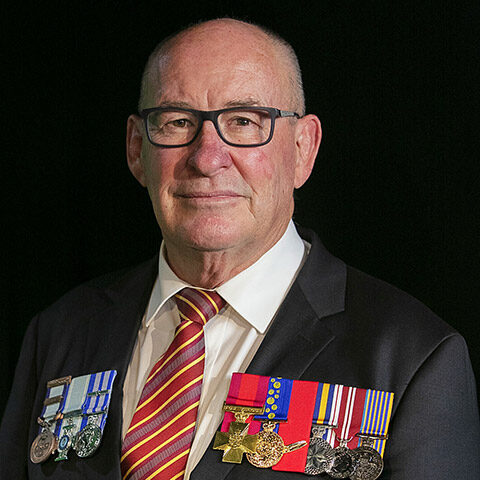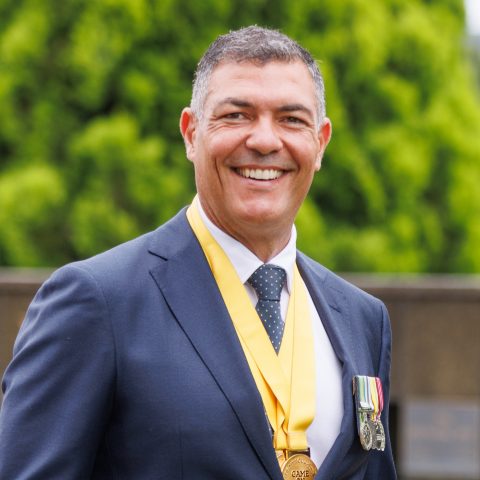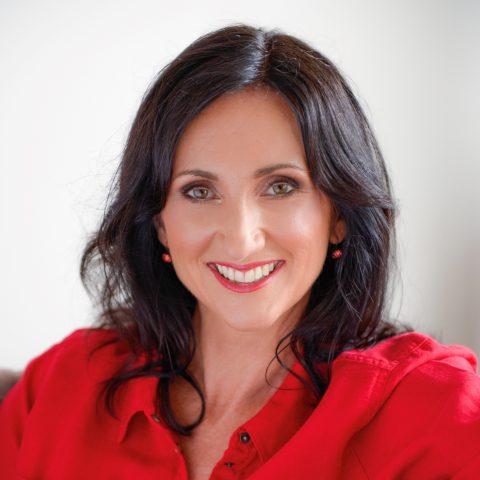Police Kids
Why a dedicated Police Kids Program?
We recognise the high-level demands and traumatic events police officers are exposed to and the impact this may have on mental wellbeing. A dedicated Police Kids Program aims to reduce stresses at home and ease the mental burden for officers, helping to promote a harmonious and secure home environment. Our Police Kids Program is designed to support the unique needs of children of police living in families impacted by mental trauma.
Our Police Kids Program is designed to assist participants to understand not only their own mental health and wellbeing, but the mental health implications policing may have on their parents. Participants are educated on mental health literacy in a fun, safe and supported way.
We know that mental health burdens are cumulative. By offering support to Police Kids, families are supported and the home environment is more harmonious. With the home environment supported this increases capacity to deal with work stresses and demands.
About Kookaburra Kids programs

Kookaburra Kids offers a range of programs specifically developed to support children living in families impacted by mental illness.
Our programs and activities are designed to be engaging and innovative, in order to empower our young people with psycho-education integrated with fun activities ensuring kids feel consistently supported. Activity days are delivered by a Program Co-ordinator and trained volunteer leaders.
Use the side menu to learn more about our different programs and offerings that the Australian Kookaburra Kids Foundation gives to our young participants.
What do young people do on Activity Days?

Have fun, make friends and just be kids! Young people enjoy fun activities like visiting recreational parks, canoeing, archery, go-karts, ice skating, laser tag, bowling, movies, putt-putt golf, whale watching and lots more! Our young people can pick and choose which activities they’d like to attends; all activities are broken down into age groups too!
What do they learn?
While our young people are having fun, they also participate in our clinically-designed “Chat Group”.
This “Chat Group” brings together young people from similar family situations and gives them a sense of belongingness, whilst offering them a safe place where they can express themselves in a supported environment while learning about mental health, coping mechanisms and building mental health resilience.
Example Activity Day Itinerary
| Time | Activity |
|---|---|
| 9.45am | Bus picks up |
| 10.15am-11am | Morning tea & ‘Chat Group’ |
| 11am-4pm | Activity Day activities |
| 4pm | Bus Departs |
What do young people do on Camps?

Our young people participate in camp activities, our clinically-designed “Chat Group” sessions and dorm together in age groups.
What do they learn?
While our young people are having fun, they also participate in our clinically-designed “Chat Group”.
This “Chat Group” brings together young people from similar family situations and gives them a sense of belongingness, whilst offering them a safe place where they can express themselves in a supported environment while learning about mental health, coping mechanisms and building mental health resilience.
Example Camp Itinerary:
Friday
| Time | Activity |
|---|---|
| 5-5.30pm | Arrive at camp & meet new friends |
| 6pm | Dinner |
| 7pm | Icebreaker games & craft |
| 8.30pm | Supper |
| 9.15- 10pm | Bedtime & Lights out |
Saturday
| Time | Activity |
|---|---|
| 7-8am | Wake up & Breakfast |
| 9.15-10.30am | Morning tea & ‘Chat Group’ |
| 10.30 – 12:30 pm | Fun activities |
| 1.15-3pm | Lunch followed by fun activities |
| 3-6pm | Afternoon Tea, followed by Free time |
| 6-9.15pm | Dinner, followed by fun activity |
| 9.15- 10pm | Bedtime & Lights out |
Sunday
| Time | Activity |
|---|---|
| 7-8am | Wake up & Breakfast |
| 9.15-10.30am | Morning tea & ‘Chat Group’ |
| 10.30 – 12:45 pm | Fun activities followed by Lunch |
| 1.15-1.45pm | Presentation & farewell |
| 1.45pm | Buses Depart for home |
How are Connect sessions run?
Kookaburra Kids Connect has been developed to form and strengthen bonds between young people living in families impacted by mental illness and to increase their sense of belonging and connection. Connect empowers young people by improving mental health literacy which in turn promotes safe and positive help-seeking behaviours.
Connect sessions are run on Zoom and hosted by AKKF staff and volunteers. Sessions are not recorded and unlike school, Connect offers a safe place where young people can express themselves in a supported environment while making connections with other young people.
At the conclusion of Connect, the host will run a short (about 10 minutes) fun, structured activity. These activities are designed to build resilience and help young people learn how to make positive choices when it comes to their emotional wellbeing.
Safety & privacy
Frequently asked questions
Is safety and security a high priority for AKKF?
YES! Our very highest priority!
- All camps, activity days and connect programs are staffed by trained AKKF staff and volunteers.
- AKKF staff and volunteers are required to complete and maintain a working with Children check.
- AKKF staff and volunteers are required to complete and maintain a national police check.
- AKKF staff conduct safety checks and risk assessments at all activity locations.
I don’t want my work to know I have registered my young person for AKKF programs. Who will know i have registered my young person?
- All personal details are collected and securely stored by AKKF.
- Details of families are strictly confidential and not shared with any third parties.
- Surveys completed after programs help us measure outcomes and provide evidence to assist with funding so we can keep delivering more amazing programs.
- All reports back to third parties are de-identified. No names or personal details are given out. No young person or family can be identified.
In the rare instance medical attention is required, do staff have first aid training?
- AKKF staff undergo ongoing first aid training.
- Full first aid kits are carried at all times.
- Full medical history of young people are taken on registration and kept up to date and care plans recorded.
- An AKKF clinical staff member are always on call on activity days.
- An AKKF clinical staff member attends every camp.
How will my young person get to programs?
- AKKF only use busses provided by large professional bus companies driven by qualified drivers who hold up to date code of conduct and risk assessment certification.
- AKKF do not use single car transport or services like uber/taxi’s for transporting young people.
- AKKF staff and volunteers do not transport young people in any transports including minibuses or private vehicles.
- AKKF supervise young people while being transported.
AKKF conduct safety checks and risk assessments on pickup and drop off locations
Where will my young person be picked up from?
- AKKF do not pick up individual young people.
- Pick up radius is determined by how far families are willing to travel to meet the bus AKKF is providing.
- AKKF run a bus from a designated pickup point to the full day activity day or camp location.
- Should an activity day or camp is be run in an area where most of the attendees live, we may not run a bus. In this instance, parents will need to pick up and drop off.
- AKKF does not provide transport for short activity days, parents will need to pick up and drop off.
Are programs broken down into age groups?
- Camps are held for either primary school or high school ages young people.
- Activity days are broken into primary school or high school ages young people. Age groups may be combined if registration numbers are low in a certain location.
- Connect sessions are broken down into many different age groups so content is age appropriate.
How much does the program cost?
- Programs are all free to families where funding is available.
Who is eligible to register for AKKF programs?
- Any young person living in a family impacted by mental health concerns can register provided funding is available.
Does a family member need to have a medically diagnosed mental illness for their young people to register to attend AKKF programs?
- NO
- Programs are available to all young people who live in a family where a family member has a mental illness.
- Young people living in families that have a member of the family experiencing Anxiety, depression, PTSD and any other mental health concerns; diagnosed or not can apply to register for programs.
Who can refer a child?
- Anyone can refer a child.
How old does my young person need to be?
- AKKF provide programs for young people aged 8-18 years of age.
- For the Police Kids Trial, we will be welcoming young people aged 12-17.
How do you refer a child?
- You can refer a child online here Refer a Child or by calling head office on 1300 566 525during business hours (AEST).
What do other people say about Kookaburra Kids?
Below are some quotes from both young people and parents in regard to their experience in Kookaburra Kids; check it out!
Sponsors
Australian Defence Apparel
ADA (Australian Defence Apparel) is a leading innovator of cutting-edge uniforms and personal equipment specialising in complex user requirements from design to distribution. As an integrated uniform solutions provider, they have long been providing expert assistance in a variety of industries.















